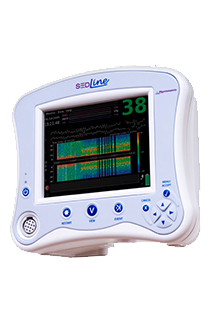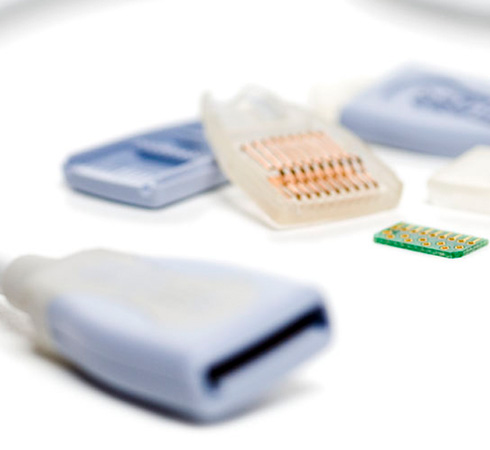



The SEDLine Brain Function Monitoring device is an advanced tool designed to help clinicians assess and monitor the brain’s state under anesthesia. It features bilateral data acquisition, capturing electroencephalogram (EEG) signals from both hemispheres of the brain simultaneously. This dual-channel approach provides a comprehensive view of brain activity, allowing for more accurate and real-time analysis during procedures. The device processes these signals to deliver critical insights into the depth of anesthesia, helping clinicians adjust dosages for optimal patient safety and comfort. With intuitive software that visualizes EEG data and provides clear alerts, the system enhances clinical decision-making and supports more precise anesthetic management.
The design of the SEDLine device was the result of extensive research and meticulous planning aimed at improving patient safety during anesthesia. Researchers and clinicians collaborated closely to identify key challenges in monitoring brain activity during surgical procedures, including the need for accurate, real-time data from both hemispheres of the brain. This led to the development of a bilateral data acquisition system, which captures EEG signals from both sides of the brain simultaneously, offering a fuller and more balanced view of brain function.
The planning phase focused on ensuring that the device would be user-friendly for clinicians while providing robust, precise data processing capabilities. The team conducted rigorous trials to optimize the accuracy and reliability of EEG signal acquisition, addressing challenges like noise reduction, signal clarity, and effective real-time processing. Extensive user testing helped refine the interface, ensuring that the data visualizations and alerts would be intuitive and actionable, even under time-sensitive, high-stress conditions.
Throughout the development, the device’s design was centered around integration with existing anesthesiology workflows and equipment, ensuring seamless operation in operating rooms. The result is a device that not only enhances clinical decision-making but also contributes to safer and more effective anesthesia management.